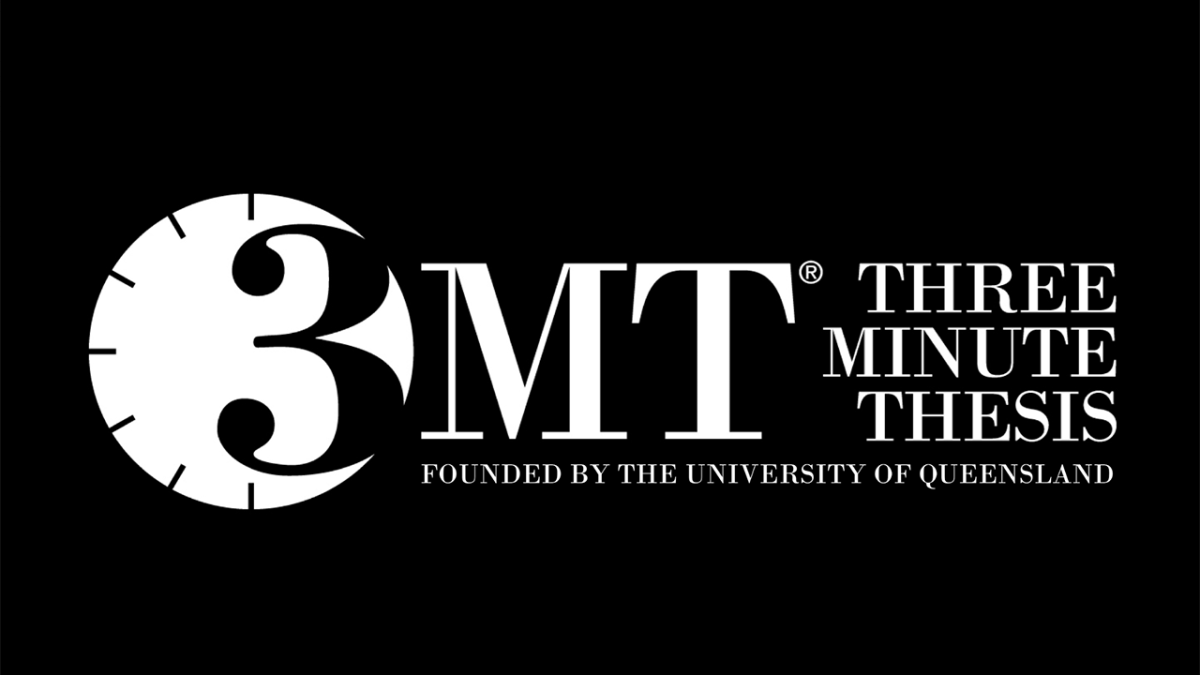The Graduate School’s annual Three Minute Thesis Competition challenges students in research to condense the details of their projects into a three minute presentation. Three winners were announced on Oct. 26. First place won $1,000.
Zack Jenio is a master’s student studying comparative biomedical sciences and a graduate research assistant for the Department of Clinical Sciences. Jenio was the people’s choice winner of the 2021 Three Minute Thesis Competition.
Jenio said participating in the Three Minute Thesis Competition helped him practice making research accessible to more than just researchers.
“I think research is really inaccessible, and I think being able to communicate research out in a clear, concise and effective way to everybody is a really important skill that a researcher, or any person, needs to know,” Jenio said. “So, it was really nice to have this experience because before it was a bit difficult to concisely explain my thesis to someone who might not have all of the scientific knowledge.”
Catey Christiansen is a master’s student studying creative writing and a graduate teaching assistant for the English department. Christiansen was a first place co-winner of the competition.
Christiansen said the competition helped her share the research side of fiction writing.
“I [am] really focusing on the fact this is a research project,” Christiansen said. “This isn’t just me making up a story. I’ve interviewed family members, I have looked through a ton of artifacts. Fiction writers do a ton of research and I don’t think people pay attention to that or know it.”
Shohanuzzaman Shohan, a Ph.D. candidate in industrial engineering and a graduate research assistant for the department of industrial and systems engineering, was also a co-winner of the 2021 Three Minute Thesis Competition.
Shohan said he encourages anyone involved in research to try out for the Three Minute Thesis Competition.
“Whoever is involved with research or has an idea that they want to convey, they should try to get into the [Three Minute Thesis Competition],” Shohan said. “This not only educates others to understand your thesis, it helps clarify what you are doing and what you will do in the future. When you do any research, there is such a limited scope, you most of the time forget about why you are doing it. This actually helps you understand why you are doing it and it motivates you.”
Christiansen said she saw the competition as a way to challenge herself.
“I did it, not because I thought that I had a chance, I really thought I had no chance,” Christiansen said. “I did it because it’s something I’m not good at. I speak around in circles, in writing I’m like this too, to get to the point, it takes me a really long time. I’m a good storyteller, but it takes a while. And so it really was a challenge to myself, like can I be succinct, can I explain what I’m doing in the most direct, economical way possible?”
Shohan said breaking a thesis down so people not involved in the research can understand it is difficult.
“It’s actually a fairly great opportunity for anyone because, it’s literally so difficult to learn how I should present my research so that outside people actually understand,” Shohan said. “The thing is, as long as you’re in the research, it’s very difficult to realize from the outside what people understand. I think that was the most challenging part.”
The Three Minute Thesis Competition includes a first round audition, a coaching session and a finalist audition. Through that process, participants were able to continually iterate their performances.
“So, we had to do a first round audition, send in a video, our slide we wanted to use,” Jenio said. “I sent that in, I made my script. You learn pretty quickly that three minutes is not a lot of time, even though you write only like a page and a half and you’re like, ‘This is perfect,’ and it’s five minutes, so [there’s] a lot of trimming, a lot of figuring what are the most important details.”
Shohan said more international students should get involved.
“I know that for most of the Ph.D. students, especially the international students, language is a really big barrier, and a lot of non-native students don’t even want to participate just because they think that because they are not native-speakers, speaking is a big barrier,” Shohan said. “If you have something that can motivate others, don’t let that issue stop you. Get involved in this and it will help you push yourself so that you can talk with others and have a multidisciplinary opportunity in the future.”













